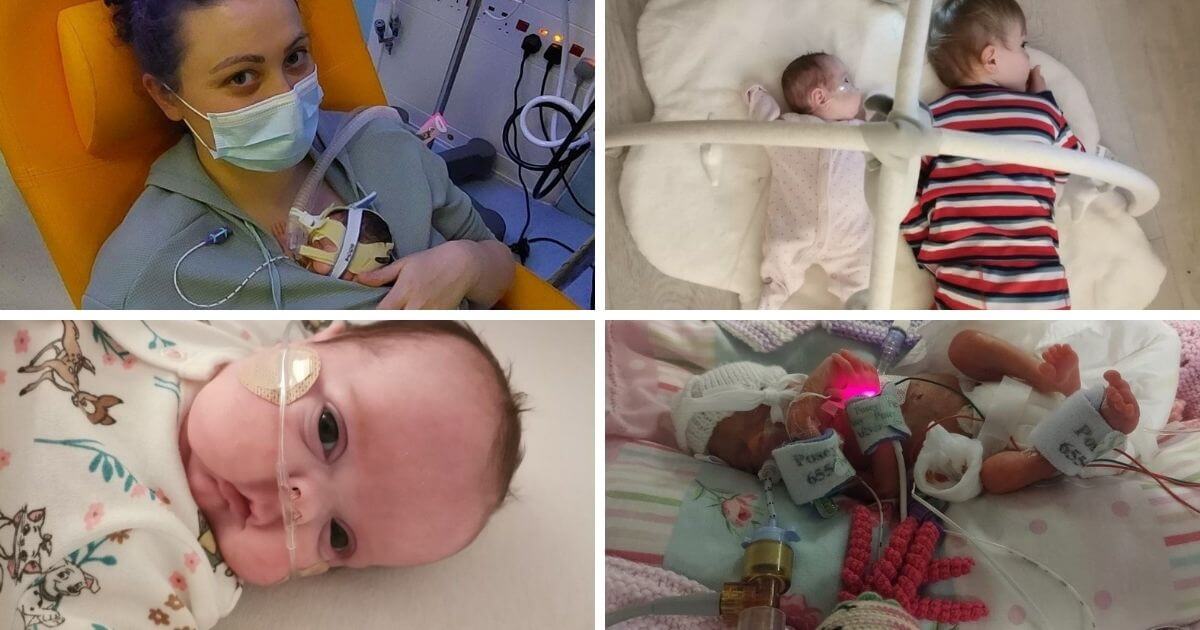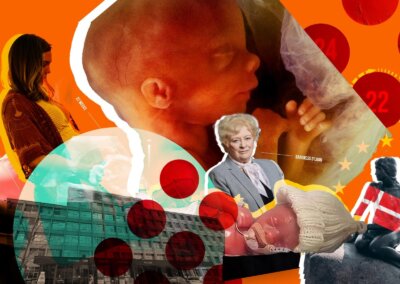A baby born at 23 weeks, at a weight of 1lb 7oz, has arrived home after an intense four-month fight for survival.
Baby Bonnie was born to Rachel Morgan on 20 September 2021 at Leighton Hospital, Crewe.
With her arrival coming 17 weeks prematurely, and due to complications on the day of the birth, there were fears she would not survive.
Nevertheless, right from the start, Bonnie proved herself to be a fighter and showed signs of life despite all difficulties.
Complications and miscarriage
Mrs Morgan’s pregnancy had already been subject to tragedy with the loss of Bonnie’s twin sibling earlier in the pregnancy. So when she woke up with more heavy bleeding, an ambulance was called to bring her straight to hospital.
Bonnie was born a little over an hour later, and as Mrs Morgan said, left medics checking whether she “showed she wants to be there”.
Her ability to breathe alone for a 12-minute period brought some relief, however the journey to recovery had just begun.
After being transferred to Arrowe Park Hospital in Birkenhead, Bonnie suffered a variety of complications including two cardiac arrests and a bleed on the brain, the back-to-back nature of which took its toll on the Morgans.
Mrs Morgan said: “It was heartbreaking because you’re not the only family in there. Every family is on their own journey and [Bonnie] seemed to be the poorliest baby all the time”.
“I never thought we would get to this stage”
Prior to heading home on 20 January 2022, Bonnie also had to undergo eye surgery at Liverpool Women’s Hospital.
“She looks like a normal newborn baby, even though she is four months old”, Mrs Morgan said.
“I never thought we would get to this stage”.
Whilst she still requires oxygen and some medication, Bonnie is feeding well and is said to be enjoying the company of her siblings Imogen, 11, and Ralph, 2.
Bonnie has weekly visits from a home care team and physiotherapy every month to help her meet developmental milestones. She will most likely have some eyesight issues and will have to cope with the effects of chronic lung disease.
Debbie Edwards, director of midwifery at Wirral Women and Children’s Hospital, said: “We are delighted that Bonnie is now able to be at home with her family”.
“The expertise of our specialist teams enable us to care for the most vulnerable babies. We really wish Bonnie all the very best now she is home”.
Born before the abortion limit
Stories like Bonnie’s are becoming more and more commonplace in our country, and indeed around the world.
Last year, Curtis, a baby born at 21 weeks and one day, almost 3 weeks before the abortion limit in the UK, was confirmed to be the world’s most premature baby. In October 2020, another severely premature baby, Sofia, was born in Scotland almost 2 weeks below the abortion limit.
Babies like Bonnie, Curtis and Sofia are not alone in being born so prematurely and going on to survive. A study published in the Journal of the American Medical Association in October 2019, followed 2.56 million babies born in Sweden between 1973 and 1997, around six percent of whom were born prematurely.
Researchers compared the health data of the premature babies to those that had been born at full term. They found that 55% of premature babies had no serious chronic, physical, or mental health issues by early adulthood. This is compared to 63% for babies born at full term.
Additionally, with each passing decade, the odds of survival for a premature baby to adulthood have improved from about 91% of babies born in the 1970s to about 96% of those born in the 1990s.
Right To Life UK spokesperson, Catherine Robinson, said: “It is hard not to hear the irony in the midwifery director, Debbie Edwards’, words when she says, “The expertise of our specialist teams enable us to care for the most vulnerable babies”. It is expertise and scientific advancement such as this that so blatantly highlight the ridiculous nature of our country’s abortion law”.
“Bonnie was born one week below the UK’s 24-week abortion time limit – a limit chosen in 1990 to reflect the point of viability. Stories such as these demonstrate that these babies can survive, and are the reason why the British Association of Perinatal Medicine allows doctors to intervene to save premature babies from 22 weeks”.
“Is it not about time our abortion law caught up, and we lower our extreme 24-week limit?”












